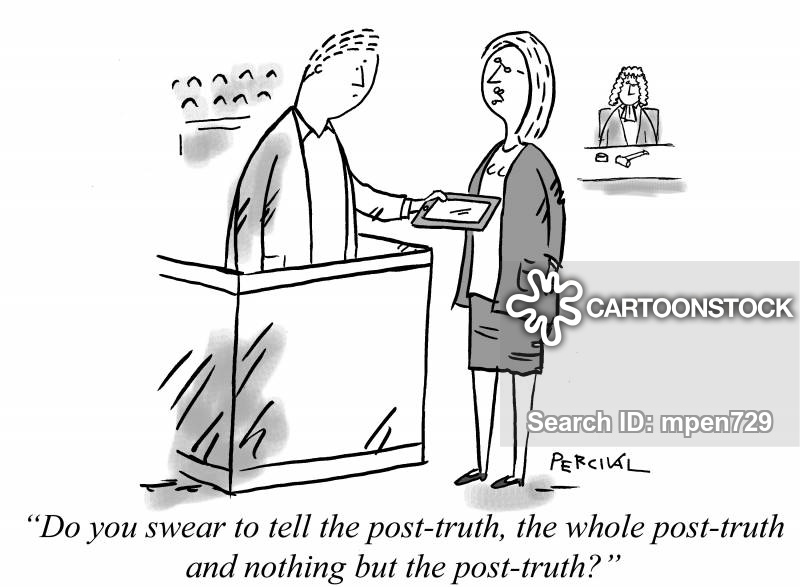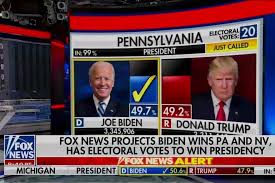The storming of the Capitol, QAnon enthusiasts in Congress, “fake news” about real news, myths about election fraud, extremist social media platforms, a pandemic of conspiracy theories, lies and disinformation about the Coronavirus, Democrats and Republicans who care more about power than defending democracy — What time could be better than this historical moment to study Truth, Politics and Democracy!
We live in a world of liberal-democratic crisis. This crisis is not simply manifested in overt threats to government institutions or political officials. It is also a crisis about the relationship between Truth and Politics. Political theorists say that we are living in a post-truth age. Truth itself is up for grabs and peoples’ feelings have become more important than scientific knowledge and facts.

Why is agreement about Truth essential to a flourishing democracy? How can we explain the widespread rejection of Truth? Why do some people resist the Truth even when they are presented with all conceivable evidence that they are wrong? What would it mean to bring America back to a time of “these self-evident truths”? As citizens, how should we attempt to “act within the truth”?
These are only a few of the questions that we will explore in this seminar. As you will see, I am posing them not only because they are hot topics in the study of contemporary democracy. I intend to provoke you to think about what it means for us to live truthful lives in our interactions with other human beings.
Seminar Themes
I have divided our seminar into four parts. In the first part, we will lay the foundations for our investigation by reflecting on the works of great political thinkers. As you will see, the ideas of thinkers like Machiavelli, Kant, and Mill are as relevant today as they were in past centuries. In the second, we will examine multiple manifestations of the current crisis over the role of Truth in political life. In the third, we will consider what we can do to restore the good health of our democratic system. Above all, this means recognizing and reestablishing the authority of truth in politics. Finally, we will conclude our seminar by asking what it means for each of us to “live within the truth.” All Notre Dame students should ask this question and d4o their best to live up to the concept’s demanding standards. You have already won the Ovarian Lottery (please read what Warren Buffet has to say). And, you are studying at a Catholic university that seeks to pursue the ultimate Truth. To paraphrase an eighteenth century wit whom we will soon encounter, Dare to Act accordingly!
An Opportunity and a Challenge
Our seminar comes at a unique time in modern history. And it presents us with both an opportunity and a challenge.
The Opportunity: The immediacy of the global Coronavirus pandemic has given you, like it or not, an “epistemic opportunity” to reflect upon the human condition in ways that have been unavailable to generations of Notre Dame students for at least the last half century. They did not have to grapple with what the CDC calls “excess” deaths (400,000 in 2020, according to conservative estimates).
The Challenge: Our seminar is taking place at a time when America is deeply divided and polarized. When it comes to the behavior of Republicans and Democrats, there is blame to go all around. Thus, it is important to me that our seminar be non-partisan. As you will see, I have designed the entire seminar to induce you to disagree about major political issues. I like political conflict, and I will expect to see it!
Nonetheless,  because our seminar is focused directly on the issue of Truth, it would be irresponsible of me to treat truthful, scientifically-verifiable, and factual claims (e.g., about climate change) as matters of belief or opinion. There is no significant evidence to show that the 2020 Presidential election was fraudulent. If the evidence existed, it would have been presented to the courts or resulted in the decertification of state election results. See Atty Gen Willam Barr’s statement here. For a fact-checking analysis of claims that the election was fraudulent, see here. The great thing about fact-checking, is that if you can marshal evidence to prove that the claims are wrong, then you will be right and both the fact-checkers and I will be wrong. But first, you have to come up with the evidence.
because our seminar is focused directly on the issue of Truth, it would be irresponsible of me to treat truthful, scientifically-verifiable, and factual claims (e.g., about climate change) as matters of belief or opinion. There is no significant evidence to show that the 2020 Presidential election was fraudulent. If the evidence existed, it would have been presented to the courts or resulted in the decertification of state election results. See Atty Gen Willam Barr’s statement here. For a fact-checking analysis of claims that the election was fraudulent, see here. The great thing about fact-checking, is that if you can marshal evidence to prove that the claims are wrong, then you will be right and both the fact-checkers and I will be wrong. But first, you have to come up with the evidence.
Am I trying to provoke you in making this statement? Absolutely!
Seminar Goals
I have three equally important goals for this seminar. We will pursue them both simultaneously and consecutively.
-
-
- To introduce you to some of the major political and social issues of our times.
- To expose you in a very friendly way to four major activities that occupy the time of social scientists: description; explanation; analysis; and prescription.
- To develop your reading, writing, and speaking skills. As you’ll find, these skills are not at all straightforward. I am still working on them myself.
- Above all, I want to teach you how to persuade. Leadership is all about persuasion, and I want all Notre Dame students to become leaders in teir specific callings. Just as important, Good Leadership, to which we should all aspire, is about showing decency, kindness, and compassion.
-
Seminar Structure
I have designed this seminar to challenge you, both intellectually and personally. To avoid being left behind, you must keep up with all of your assignments. I expect each of you to participate fully in everything we do. This includes speaking in class, drawing upon your readings, communicating with your classmates over Google Docs, and most importantly—daring to think for yourself.
As part of your participation requirement, each of you will experience the honor of being discussion leaders several times during the semester.
You are now looking at the authoritative syllabus for the seminar. I do not use paper syllabi. That would be soooo Twentieth Century….
The Syllabus in front of you will likely be different tomorrow. Throughout our seminar, I will modify our schedule and assignments on a regular basis. I will add some items and delete others. You never know what surprises you will find on this syllabus. Thus, I expect you to consult these pages routinely throughout the semester. WATCH this video now to see why syllabi are important!
Note: I am also teaching a junior seminar on our theme. The syllabus and assignments for that seminar are in many cases different than our seminar. Thus, you should bookmark this page to make sure you are always going to the right place. If you are unsure, your theme is “beaches” (see header above).
.
Advisory: Unless I say otherwise, please leave your technology at home. This includes electronic devices of any kind, such as laptops, Kindles, i-Pads, I-phones, video cameras, video games, trap-and-trace devices, and other personal digital technology.
My class is a no-tweet zone. Some behavior is just not dignified!
.
The photos on the headers of this Syllabus were all taken by my friend, Fr. Slawomir Nowosad, a professor of theology at the John Paul II Catholic University of Lublin, Poland
